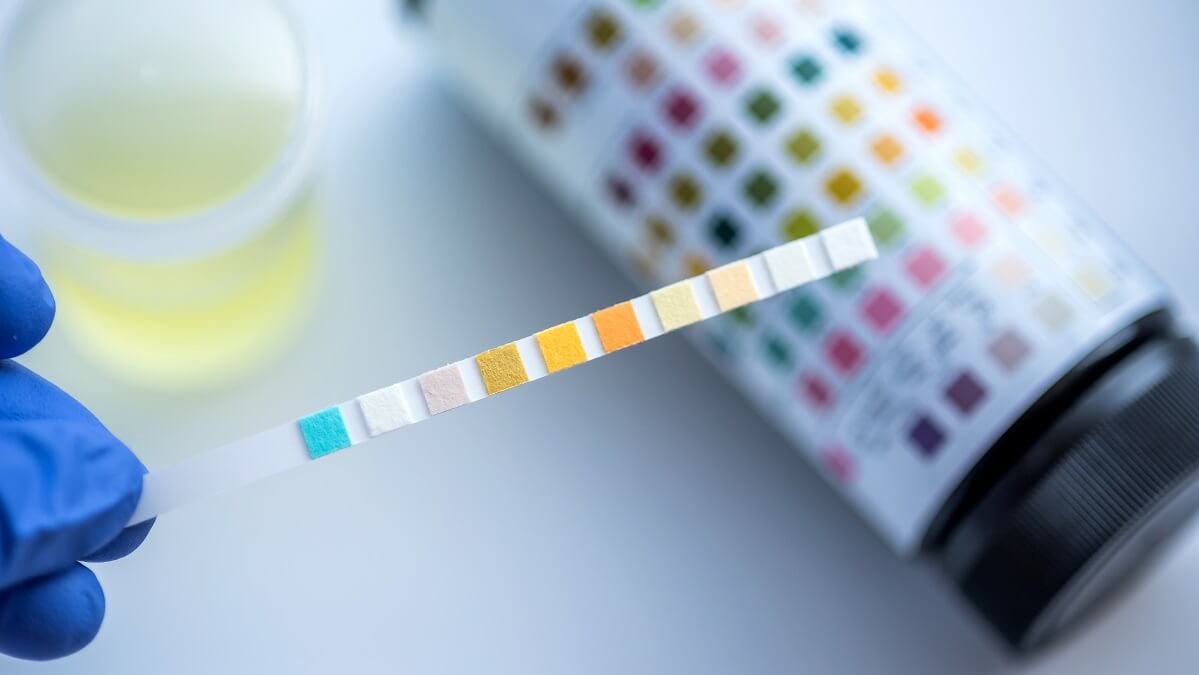Researchers have developed a single urine test that can detect two types of cancer, without the need for invasive detection methods or scans.
Detecting cancers as early as possible is essential for recovery. Delaying diagnosis can literally be a death sentence.
So a cancer screening test that is quick, easy and, above all, accurate, is a major breakthrough.
A team of industrial researchers from the Korea Institute of Materials Science has demonstrated that a simple urine test can detect both pancreatic and prostate cancer – with a 99 per cent success rate.
This is particularly important for those with pancreatic cancer. More common in older people, pancreatic cancer often presents with no symptoms until it has progressed to later stages, by which time it may be too late for treatment.
Prostate cancer is the most commonly diagnosed cancer in Australia – even though it affects only men.
Metabolite compounds present in urine are different in people with cancer versus those without cancer. This relationship was previously known, but detecting these compounds in urine was a laborious process.
To get around this limitation, the team developed what it calls a Surface-Enhanced Raman scattering (SERS) sensor, contained within a handheld testing machine.
The sensor can detect ‘hotspots’ in urine samples as small as 10 microlitres (one millionth of a litre) that indicate the presence of certain molecular compounds that point to cancer.
In their study, published in the journal Biosensors and Bioelectronics, the team tested 120 patients and were able to identify 19 patients with pancreatic cancer, 39 patients with prostate cancer and 60 who were cancer free.
It’s hoped the quick and easy test will complement existing detection methods using blood samples and radiographic scans.
Ho Sang Jung, lead author of the study, told Medical News Today he hopes the successful trial can be translated into a new weapon in the fight against cancer.
“Since early diagnosis is the most important for incurable diseases such as cancer, we expect this technology to provide a new diagnostic method,” he says.
The team is already pivoting towards repurposing the test to detect other types of cancer.
“The number of patients tested using our system is continuously growing. Our team is trying to get as many clinical samples as possible to build more general deep-learning models with better accuracy,” Mr Jung says.
“The next step in this research is broadening applicable cancer types. Now, our team has just finished testing clinical samples of pancreatic cancer, prostate cancer, lung cancer and colorectal cancer simultaneously, and our team is expected to submit an article this year.”
Could this change cancer treatment as we know it? Do you see your health professional for annual checks? Let us know what you think in the comments section below.
Also read: Understanding blood pressure

